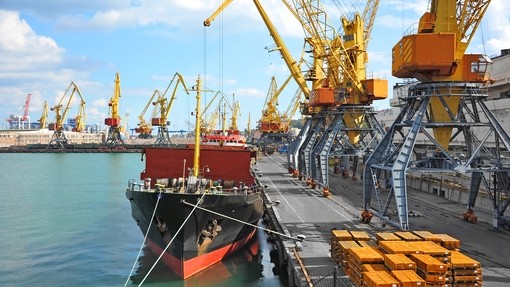Court declines to provide advance guidance to referee on his jurisdiction under crude oil contracts
Premier Oil UK Ltd -v- Shell International Trading and Shipping Company Ltd [2023] EWHC 3269 (Comm)

Court declines to provide advance guidance to referee on his jurisdiction under crude oil contracts
These two contracts for the sale of crude oil incorporated a detailed pricing structure that referenced the Platts price benchmark. When Platts made a material change to the methodology used, the parties were unable to agree an alternative source of price information.
A referee was appointed pursuant to the contracts to determine the issue, but the parties disagreed on whether and what instructions he should be given before he performed his function under the contractual referee procedure. The Court found that it had jurisdiction to give advance guidance on the scope of his decision-making powers but that this was not an appropriate case in which to exercise that jurisdiction.
The decision clarifies when and to what extent the Court will interfere with an expert or referee appointment or determination (the same principles apply to both). The Court will be reluctant to interfere in the contractual dispute resolution mechanism agreed by the parties unless it is strictly necessary to do so.
The background facts
These were two contracts dated 30 September 2019 for the sale of crude oil from oilfields close to the Shetland Islands. They both contained a detailed pricing structure fixing the price to be paid under the contracts for the duration.
The price to be paid under both contracts was calculated, among other things, by reference to a Platts price differential benchmark for Urals crude oil delivered CIF (Cost Insurance & Freight) into Northwest Europe (Urals Assessment). However, from 1 November 2022 and in reaction to the European sanctions against Russia, Platts made a material change to the methodology used to calculate the Urals Assessment.
The parties could not agree an alternative source of price information within the time period stipulated in the contracts, following which they were required to appoint a referee to determine the issue. The scope of the referee’s decision-making powers was expressly set out in the contracts and was separate to detailed contractual provisions dealing with expert determination in relation to other types of dispute under the contracts.
The relevant provision in each contract provided in relevant terms simply that:
“…The referee shall determine an alternative source of price information which in the opinion of such referee most accurately reflects the market price to be applied in calculating Assessments for [the contractual] Crude Oil.”
The parties could not agree on the referee’s terms of reference. Each party thought the other was seeking to unduly influence the referee in exercising his powers under the contracts.
The Seller asked the Court for a declaration that no further instruction to the referee was required before he performed his function under the contractual referee procedure.
The Commercial Court decision
The Court considered whether it was appropriate for it to express a view as to the scope of the referee’s decision-making powers before the referee had exercised those powers and, if so, what guidance it should give.
It was clear that where the parties had agreed on the referee or expert’s terms of reference (the principles and procedure he should apply to his determination), the Court could still decide whether the expert had correctly applied those principles and procedure and it could and would set aside a determination if the expert had acted outside the scope of his authority. Furthermore, where the expert was required to construe any terms of the contract in order to reach his conclusions, the Court could review his conclusions (absent provision to the contrary in the contract) even if the contract provided that the expert’s decision was final and binding.
However, the Court would not usually intervene before an expert had completed his task even if one or other party feared that the expert might go wrong. While there did not need to be exceptional circumstances for such an intervention, the Court would exercise its discretion to decide whether it was in the interests of justice and convenience to do so.
The fact that one party might face evidential difficulties in establishing that an expert had gone outside their authority was not usually a legitimate reason for the Court to give a pre-emptive ruling. The parties had agreed to submit to a particular form of decision-making with whatever evidential difficulties that might entail and the Court should not re-write the terms of the contractual dispute resolution mechanism just because one or both parties found it was unsatisfactory.
The Court decided it would not be appropriate to exercise its jurisdiction to give the referee instructions or guidance in advance of his determination in this case. The parties were sophisticated commercial operators. They had contracted that an alternative source of price information would be decided in the first instance by the referee rather than the Court. At the time of contracting, they were satisfied that the contractual provisions were sufficiently clear to provide the referee with the information he needed to perform his task. There was no evidence to suggest that the referee would not properly apply the relevant contractual provisions or that he would seek to construe his task too narrowly or too widely, as feared.
The Court added that had the parties thought it necessary to give the referee more guidance on the scope of his decision-making powers, they should have done so at the time of contracting; this should be contrasted with the very detailed contractual provisions relating to expert determination.
The Court also thought that if it did need to construe any contractual provisions, it would be better placed to do so once it had the referee’s determination and an understanding of why he reached that decision. It would then have the benefit of the referee’s knowledge and expertise and could better test whether his determination was within or outside of the scope of his authority. There was a danger that if the Court gave guidance now, it might inadvertently restrict the referee’s determination in a way that was not intended by the contracts. Ultimately, the Court should be reluctant to make a pre-emptive ruling.
Comment
The Court’s conclusion that the ambit of the referee’s decision-making powers was prescribed and circumscribed by the contractual provisions highlights the importance of ensuring that expert/referee determination clauses are carefully considered at the time of contracting to ensure that they clearly set out the relevant terms of reference and define the scope of the relevant decision-making powers.
The Court will not readily “fill in the gaps” because the parties’ drafting subsequently proves unsatisfactory. A dispute resolution or expert/referee determination clause may either be struck down for being too uncertain and unworkable, or it may be applied as is even if it is unfavourable to one or both parties.






